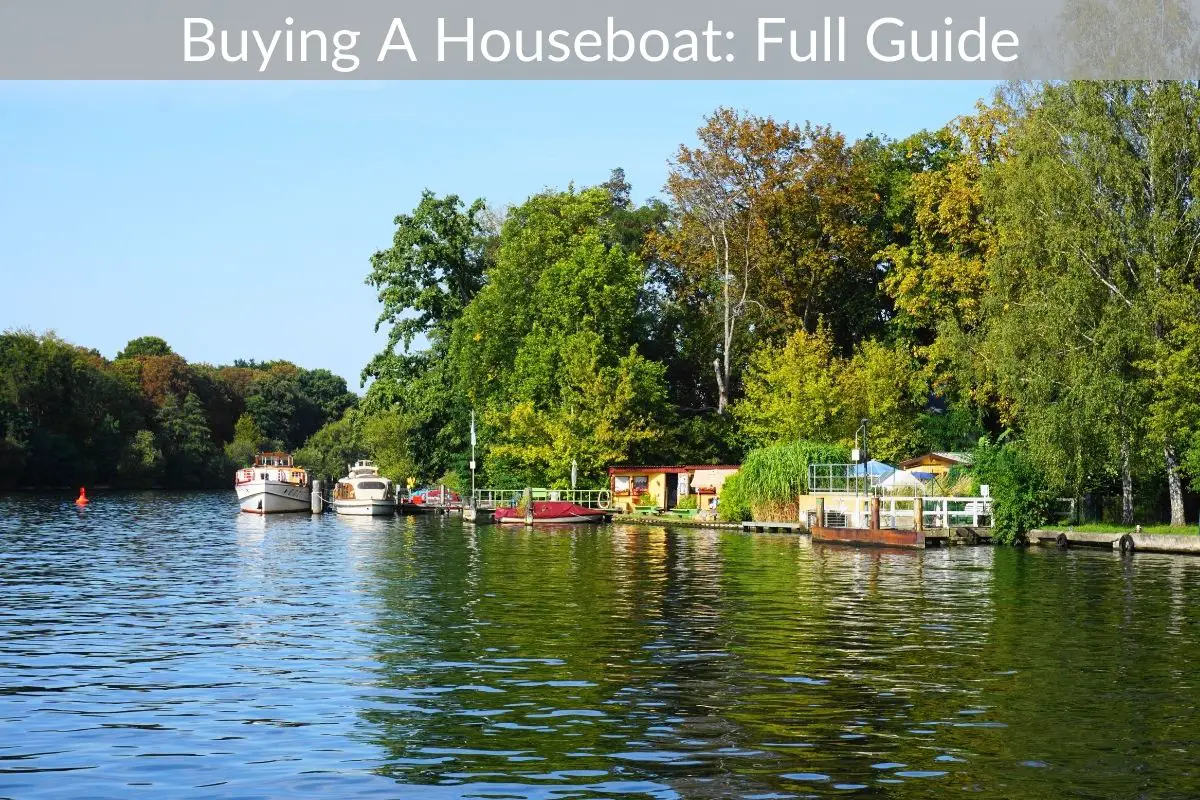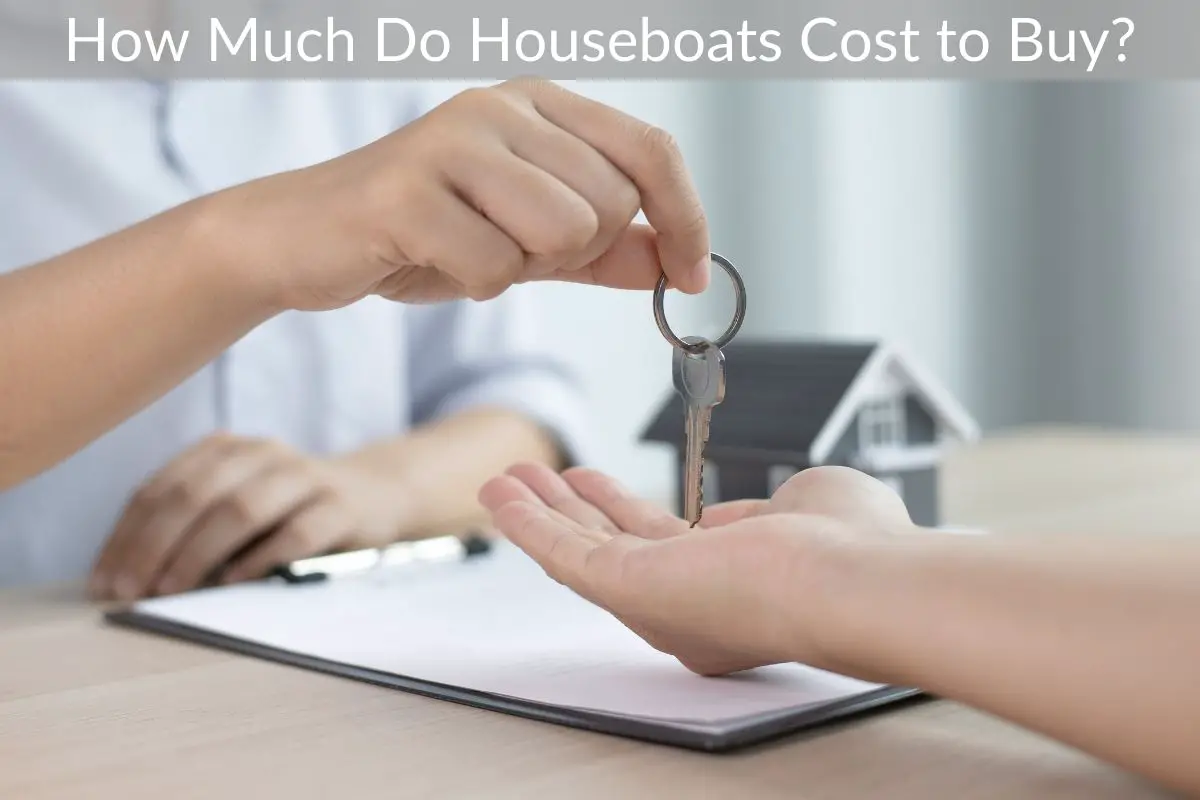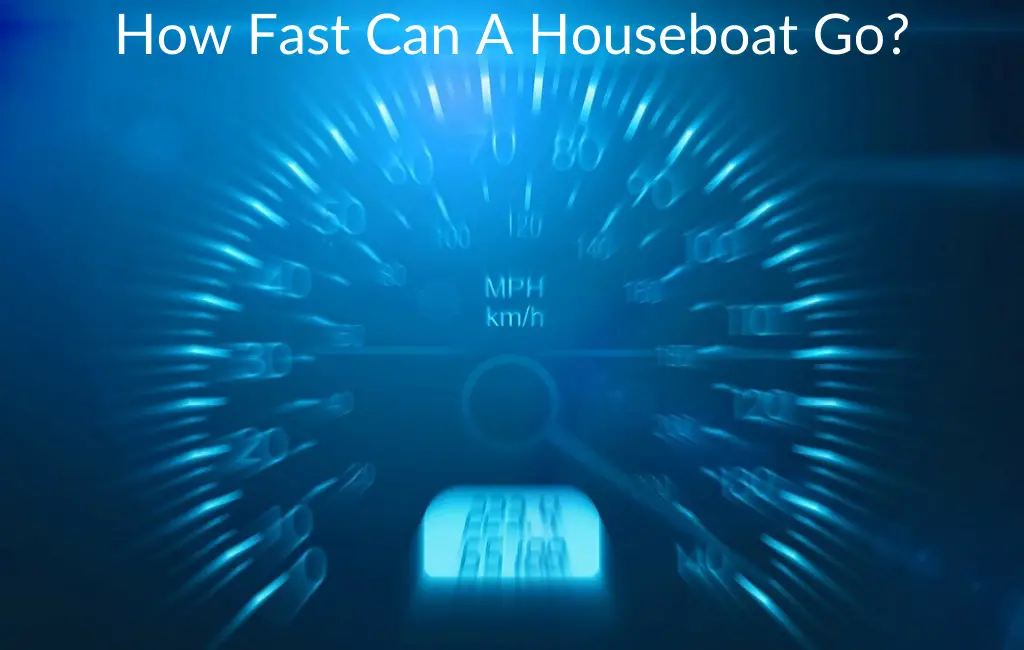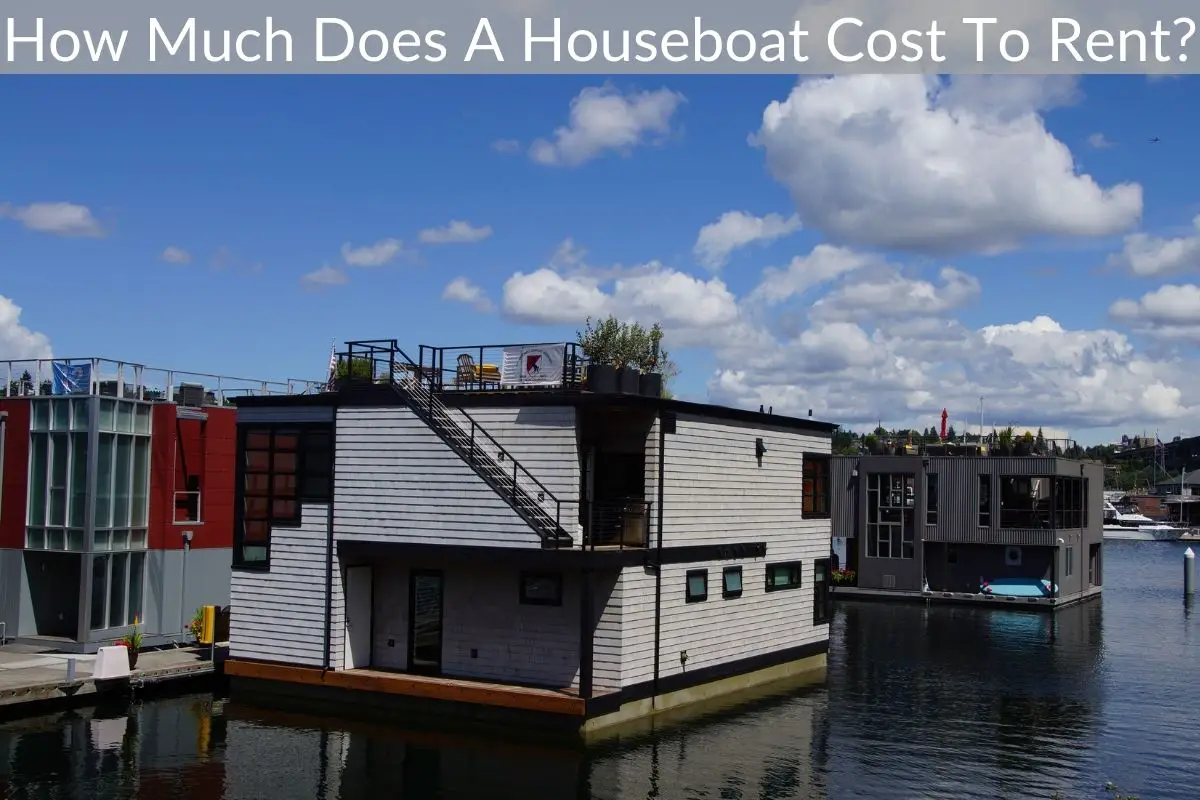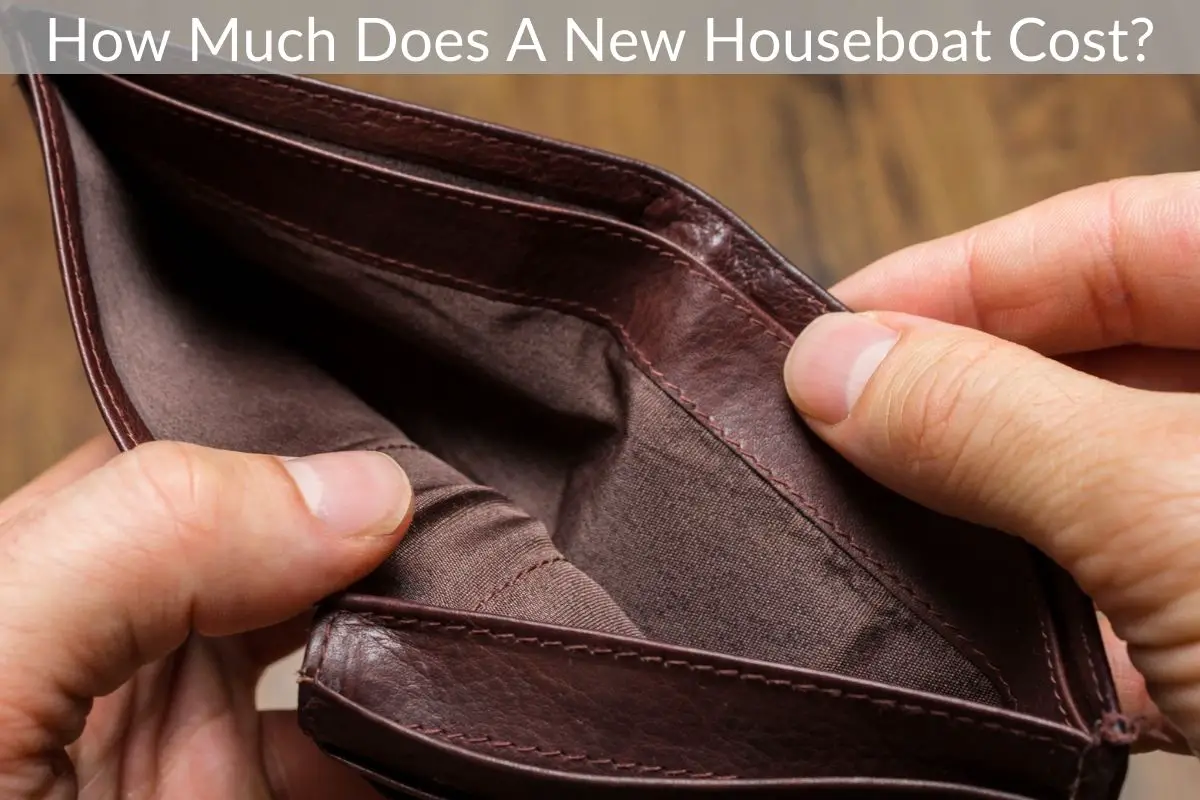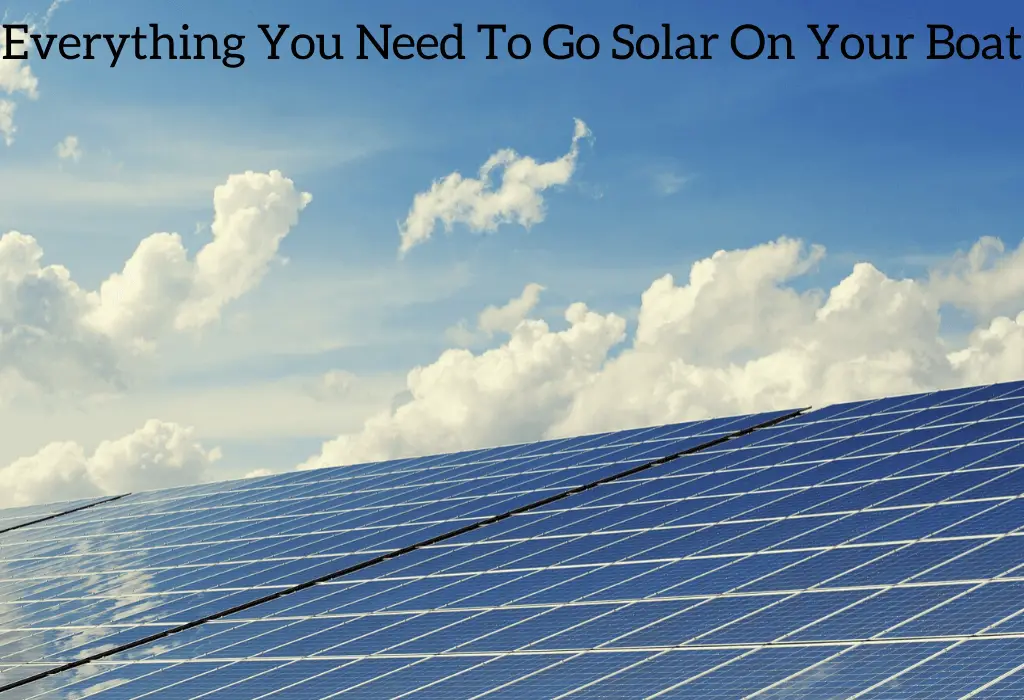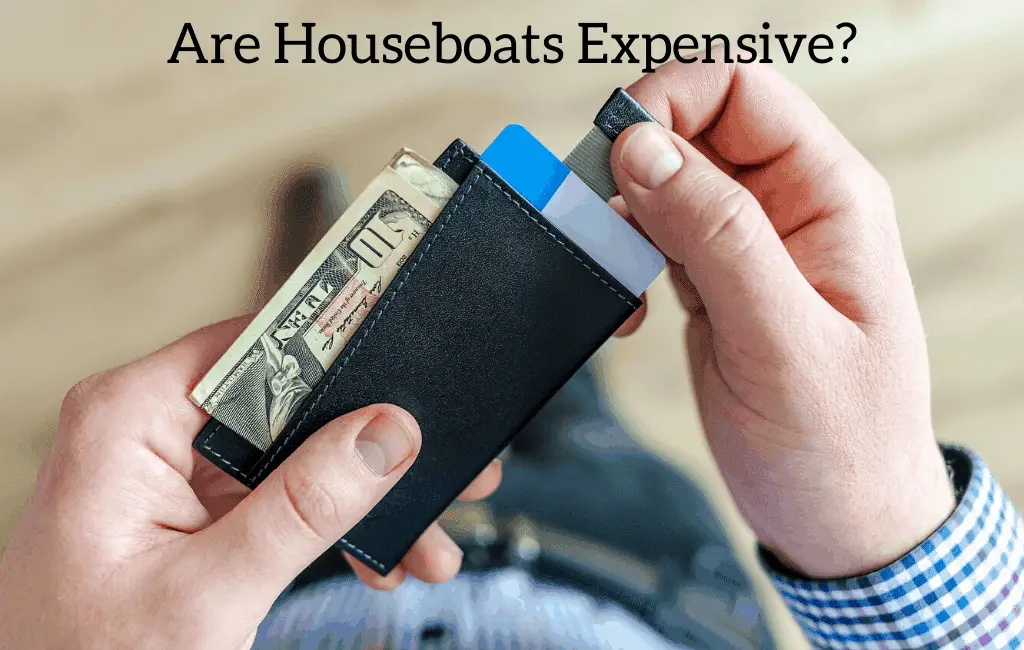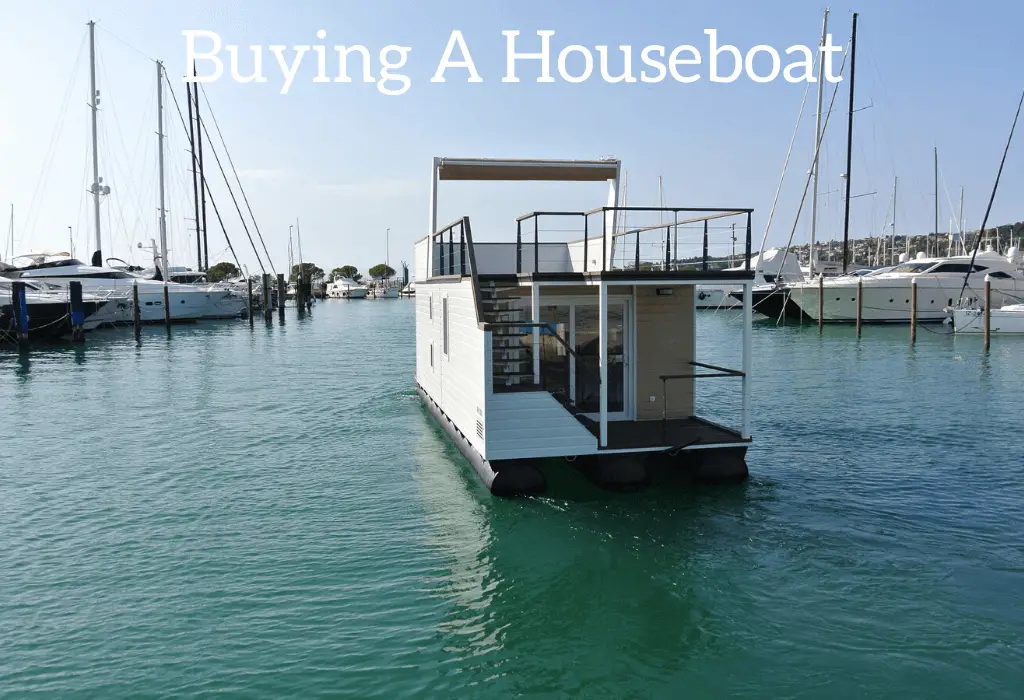When you own or rent a houseboat how does it get power to it? Is it like a normal home? How does it get power when it’s on the water?
*This post may contain affiliate links. As an Amazon Associate we earn from qualifying purchases.
Many boat owners will pay for their electricity through dock fees. You pay according to how much you use. Houseboats that are docked can run on normal household appliances, but if you’re out on the water, you’ll have to prioritize your energy and use solar power instead.
Below are the most common ways that houseboats are powered while on the water as well as some other important things that allow your houseboat to still operate much like a normal house when it isn’t docked.
Solar
Not all houseboats are suitable for solar energy, but you can use modern battery systems to supplement your power sources. If your houseboat is driven frequently, you’ll be able to generate enough power from solar panels. In addition to the battery system, you’ll also need a roof terrace for installation. The current market leader is the PowerRouter by Nedap. You can find out more about its features and pros and cons below.
The ideal houseboat solar power system can provide anywhere from a thousand to one thousand watts of electricity. The size of the solar panel should be matched to your boat’s overall power consumption. It’s important to test the panels and batteries to ensure that they will provide the energy you’ll need. You can test different types of panels on different days to see how they perform, and you can use a charge controller to track output in real time.
When choosing a solar panel for a houseboat, keep in mind that south-facing is the best direction. Since houseboats are typically out on the water, they’ll receive all-day sunlight. In addition to making sure it receives all-day sunlight, it’s important to make sure the slope is the correct angle, so that rain does not fall on it. Ultimately, solar panels are ideal for houseboats, but if you’re looking for a cost-effective way to make solar energy on your houseboat a reality, you’ll have to choose a system that fits your needs and budget.
Generator
There are several types of houseboat generators on the market. Some are gasoline-powered, while others are diesel-powered. Gasoline-powered houseboat generators are lightweight and are easy to start, but they are not as efficient as diesel generators. Diesel-powered houseboat generators are more complex and are best for sustained use. However, they can be more expensive and may not be ideal for small houseboats. Which one is right for your boat? Here are some tips to choose the right houseboat generator.
Before buying a generator, write down the wattage requirements of your boat appliances. Then, add them up to figure out the maximum amount of current you can use with each device. Choose a generator with a higher wattage. If you have an open house, choose one that uses the same fuel as your houseboat’s main engines. Then, you can enjoy the same amenities while enjoying the peaceful and beautiful surroundings on your houseboat.
A houseboat’s wiring system is complicated. The system may be divided into two panels for 120 and 220 volts. The original factory wiring will have one panel for all circuits, while the dockside wiring may use different systems. Wiring systems on houseboats vary widely, even in smaller vessels. Some boats have hundreds of feet of conductor strung throughout the vessel. Whether you choose to use a generator or not will depend on the size and number of appliances.
Batteries
Battery size matters. There is no one-size-fits-all battery. Different kinds of boats require different sized batteries. Your kayak battery size is probably different than your bass boat’s. Different types of boats also require different types of batteries. So, how do you select the right battery for your houseboat? You can choose from flooded lead acid, gel, AGM, or Lithium Iron Phosphate batteries.
The first question is: how do you connect to shore power on a houseboat? There are a few ways to do this. The easiest is to hook up to the marina or dock. Otherwise, you can generate your own electricity by using a generator. If you need instant power, you can use a gasoline generator. However, you should be aware that gasoline-powered generators are only available in a limited supply.
Lithium batteries are lighter than lead-acid ones, and they can store more energy at the same weight. They can also be installed under the bed without any venting, which makes them safer and easier to install. Lithium batteries are not difficult to install, but you will need to upgrade other components. For instance, lithium batteries require a special battery management system. This system is built into the battery. Unlike lead-acid batteries, lithium batteries do not have memory loss.
You can also install solar panels on your boat to power the boat’s electrical systems. These systems work well during the day, but the most convenient time for installation is during the night when there are no sunlight. However, solar panels are better at generating power during peak sun hours, which is why they are better than lead-acid batteries. They also last longer than the latter. A houseboat can have as many as eight batteries if the owner wants.
Lithium-ion batteries
Lithium-ion batteries are the best choice for a houseboat for several reasons. These batteries are highly effective at boosting performance and extending battery life. The up-front cost of lithium-ion batteries is higher than that of lead-acid batteries, but the long-term benefits are well worth it. Lithium-ion batteries power houseboats with higher energy density than lead-acid batteries.
For one thing, they are extremely reliable. Unlike lead-acid batteries, lithium-ion batteries do not grumble or whine when they run out of power. When a lead-acid battery runs out of power, the lights dim. In contrast, lithium-ion batteries keep the lights on until the very moment of shutting down. That kind of shutdown could be disastrous if you’re out on the water.
As far as quality is concerned, the Ampere Time LiFePO4 battery series is the industry’s best lithium-iron houseboat battery. These batteries have multiple capacities, ranging from 50 to 300 amp-hours. Although they are more expensive than conventional marine batteries, they weigh about half as much as the equivalent lead-acid or lead-calcium battery. These batteries are highly durable, long-lasting and offer a wide range of performance.
The onboard batteries of houseboats are arranged in a battery bank that connects them. Houseboat battery banks can range in complexity and safety. They can charge when the boat is docked or connected to shore power. Likewise, when the houseboat is plugged into shore power, the batteries will recharge when the vessel generates more power than it uses. With lithium-ion batteries, it is possible to run a houseboat for longer periods of time than a lead-acid battery.
Water tanks
A non-cruising houseboat has the same requirements as a house on land, with the exception that it is directly connected to a sewage treatment plant and a source of fresh water. In such a case, water tanks connect to an external water line via “water hookup” – a hose connecting to the boat’s fresh-water system or city water. The sewage line sucks the waste away from the boat head.
A houseboat’s fresh-water holding tanks are usually about 5 gallons or more in capacity. They are used to store clean water and distribute it throughout the vessel. Grey-water tanks, on the other hand, are used to store waste from the sinks. They are typically dumped overboard but some installations allow for diverting grey-water into holding tanks. In the latter case, water tanks are a vital part of any houseboat.
For those in the US, a tank type water heater is standard equipment. There are many different sizes and models available. Most houseboats will have tanks between 10 and 20 gallons of hot water. Larger houseboats, however, have larger tanks, which need more electricity to heat. However, this doesn’t mean that it’s impossible to get hot water while sailing. If you want to save money, you should choose a smaller tank. However, be sure that it fits your houseboat’s needs. A 10 gallon tank will be enough for a long shower, and two half-hour showers are sufficient.
Navigational systems power houseboats. In the past, mariners relied on celestial navigation, inadequate maps, and compasses to guide them. Today, however, the Global Positioning System, or GPS, helps mariners find their way to any destination. This technology can help keep a boat on course and avoid being stranded in unfamiliar waters. It is especially useful for navigating houseboats when the owners are out for a vacation.
A navigation system is also essential for safety. It enables boaters to avoid collisions with other vessels, especially at night or when visibility is reduced. Navigation lights help the boater see other vessels and determine their size, activity, and direction. The lights are extremely useful, and understanding them can help the boater decide what to do if a collision is imminent. Navigation systems help the boater stay safe and avoid costly damage to the property of other boaters.
Houseboats use both AC and DC power to power their systems. While AC power is used for household appliances, DC power is used for mechanical and utility applications. Houseboats often have separate generating units, which send DC current to the batteries and convert it to AC power. However, some boats have generators to generate AC power for the houseboat’s navigational systems. This type of generator can be expensive, so it’s important to find out how they work and what they do.

